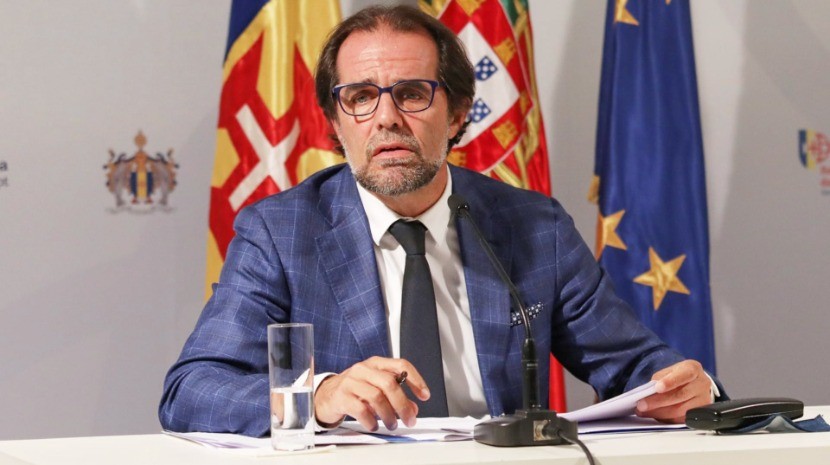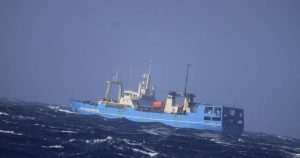The Court of Justice of the European Union (CJEU), has made a decision on an appeal filed by Madeira over the Brussels decision that ‘led’ state aid to the region’s Free Trade Zone, and then demanded that it be recovered.
On the 4th of December 2020, the European Commission considered, after inspection, that the State aid scheme granted to the Madeira Free Trade Zone (ZFM) was incompatible with the rules of the internal market and demanded that Portugal recover the money within eight months.
This procedure was opened due to the European Commission’s doubts as to the application of tax exemptions on income from activities actually and materially carried out in the autonomous region and the link between the amount of aid and the creation or maintenance of effective jobs in Madeira.
The companies covered by the financial package, are those that have received more than 200,000 euros under the Madeira Free Trade Zone aid scheme and cannot demonstrate that their taxable income or jobs created are linked to activities carried out in the region.
The ZFM regime takes the form of a reduction in corporate income tax on profits resulting from activities actually and materially carried out in Madeira (3% from 2007 to 2009, 4% from 2010 to 2012, and 5% from 2013 to 2020), an exemption from municipal and local taxes, as well as an exemption from the tax on the transfer of real estate for the creation of a company in the ZFM, up to maximum aid amounts based on the ceilings of the tax base applicable to the annual tax base of the beneficiaries.
These ceilings are fixed, based on the number of posts maintained by the beneficiary in each financial year.
The International Business Centre of Madeira (IBC), also known as the Free Trade Zone, has more than 2,400 registered companies, which are responsible for 82% of the region’s export volume, generating tax revenues in the order of 100 million euros, and represent about 6,000 direct and indirect jobs.
By mid-morning yesterday, the General Court of the European Union (TGUE) rejected an appeal filed by Madeira, thus agreeing with the European Commission’s decision to consider illegal state aid to the region’s Free Trade Zone.
According to a press release, the General Court points out, in the judgment released today, that the Commission correctly concluded that the IRC reduction scheme applied to companies in the Madeira Free Trade Zone (ZFM) violated decisions by Brussels. Therefore they are looking to recover approximately one billion euros.
Companies could only benefit from a reduced corporate income tax rate (which ranged from 3% to 5% between 2007 and 2020) if they created and maintained a certain number of jobs in the archipelago, which Brussels claims did not happen.
By lunchtime yesterday, the European Commission said that it had taken note of the judgement made by the General Court of the European Union that “confirms” its decision to consider state aid to the Madeira Free Trade Zone illegal, by rejecting the appeal filed by the region.
It was concluded that “the tax reductions were applied to companies that did not make any effective contribution to the development of the region, including jobs created outside Madeira – and even the EU – in violation of the conditions laid down in the 2007 and 2013 state aid decisions and the EU state aid rules.”
The official source of the European Commission recalls that “the objective of the approved measure was to contribute to the economic development of the outermost region of Madeira through tax incentives to companies that create jobs in Madeira and to the activities effectively and materially carried out in that region, “but it was found that “the application of the aid scheme of the Madeira Free Trade Zone, is not in accordance with the decisions of the Commission.”
Reacting to the news, the Regional Government of Madeira announced that it will appeal against the decision of the General Court of the European Union that upheld the European Commission that considered state aid to the Free Trade Zone of this autonomous region to be illegal.
“We will appeal this decision because we believe it is a stupid decision, sorry for the term,” the president of the Regional Government of Madeira, Miguel Albuquerque, told journalists at the Belém Palace in Lisbon, where he was heard today as president of the PSD/Madeira on the date of the next elections to the Madeiran parliament (24th of September).
Miguel Albuquerque argued that “the International Business Centre of Madeira is an instrument of internationalisation of the regional economy and the national economy, that is, it exists with state aid in order to provide the diversification of the region’s economy, which has its limitations, and work in the world market.”
The Madeira Free Trade Zone covers “a set of companies that operate in the world market,” based in the region, but that “need to have employees in the markets where they work,” he maintained.
The President of the Regional Government of Madeira, therefore, challenged the principle of “limiting jobs to the physical existence of jobs in the Autonomous Region of Madeira.”
“To say that the workers of these companies who work in the international market have to be physically circumscribed to the exercise of work in the Autonomous Region of Madeira has no meaning and is exactly the opposite of what we want,” he said.
Miguel Albuquerque said he was not sure which instance the Regional Government of Madeira will appeal to, but that he had been informed: “that these decisions are subject to appeal.”
Samantha Gannon
info at madeira-weekly.com






